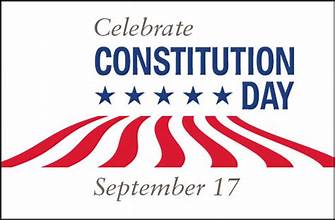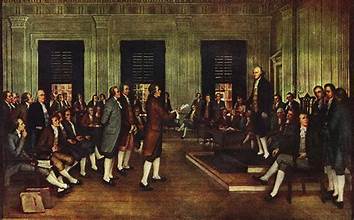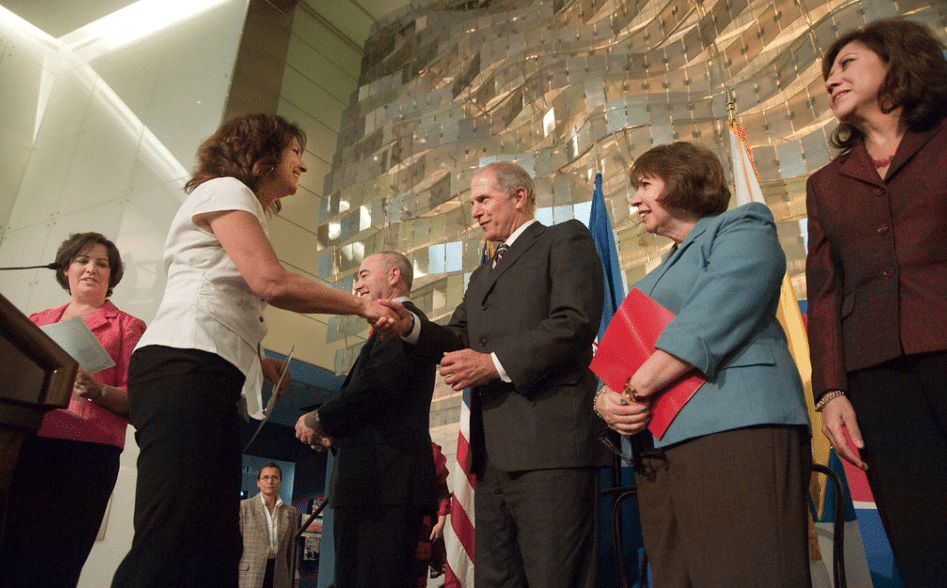Constitution Day, noticed every year on September 17, honors the reception of the US Constitution in 1787. This vital day denotes the marking of the U.S. Constitution by 39 representatives at the Sacred Show held in Philadelphia. The Constitution, a foundation of the American majority rules system, laid the essential legitimate and legislative structure for the US, laying out the standards of federalism, partition of abilities, and the security of individual freedoms. The verifiable setting of this day is fundamental for grasping its significance; the late eighteenth century was a time of monstrous political trial and error and vulnerability. The Articles of Confederation, the underlying overseeing report of the US, demonstrated deficient in tending to the necessities of a developing and various country. The Sacred Show gathered to address these weaknesses, saw discussions and conversations that at last brought about the making of a more hearty and adaptable arrangement of administration. The reception of the Constitution was a fantastic accomplishment, mirroring the aggregate vision and split the difference of the Initial architects who tried to make a more wonderful association.

The Constitution Day recognition, formally acknowledged in 1952 by President Harry S. Truman, later acquired conventional status through the order of Public Regulation 108-447 out of 2004. This regulation orders that instructive organizations get government reserves to give instructive projects about the Constitution on this day. The objective is to guarantee that residents are educated about the record that administers their country, advancing municipal mindfulness and commitment. Schools across the US draw in understudies in exercises going from homeroom conversations to deride shows, assisting with rejuvenating the Constitution and highlighting its significance in contemporary society. The day fills in as a sign of the getting through standards of a majority rules government, freedom, and equity cherished in the Constitution, and gives an open door to reflection on the continuous difficulties and obligations of citizenship.

The actual Constitution is a surprising record, described by its quickness and adaptability. Including a prelude, seven articles, and 27 changes, it gives a system to the design and capability of the central government, as well as the freedoms of people. The introduction, starting with the notorious expression “We Individuals,” presents the record’s motivation: to lay out equity, guarantee homegrown serenity, accommodate the normal guard, advance the overall government assistance, and secure the endowments of freedom to ourselves and our families. Every one of the seven articles tends to explicit parts of administration, including the powers and limits of the regulative, leader, and legal branches. The changes, especially the Bill of Privileges, count the principal privileges and opportunities

without a doubt to American residents, like the right to speak freely, religion, and the press, as well as insurance against nonsensical quests and seizures.
The meaning of Constitution Day stretches past simple remembrance; it fills in as an essential event for looking at the Constitution’s effect on American life and administration. The record has not just directed the advancement of the US but has additionally roused vote-based developments around the world. The standards implanted in the Constitution — like balanced governance, federalism, and the assurance of individual privileges — have affected different worldwide structures and are meaningful of vote-based beliefs.

Noticing Constitution Day includes different exercises to improve public comprehension of this primary archive. Instructive projects are a key part, and many schools, colleges, and community associations utilize this day to have talks, discussions, and conversations about protected issues. These exercises help understudies and residents value the Constitution’s authentic setting and its part in profoundly shaping contemporary American culture. Notwithstanding instructive occasions, public functions and readings of the Constitution are normal, building up the report’s significance and significance.
Besides, Constitution Day urges residents to ponder their job in maintaining popularity-based values and obligations. It is a day to commend the getting through standards of a majority rules government and perceive the continuous endeavors to advance and safeguard these qualities. This reflection is particularly relevant in a time where municipal commitment and mindfulness are pivotal to keeping a sound majority rules system. The recognition of Constitution Day likewise features the significance of figuring
The festival of Constitution Day isn’t restricted to the US; it has worldwide ramifications too. The American Constitution is in many cases referred to as a model for different nations fostering their vote-based structures. The standards of individual freedoms and law and order significantly affect worldwide common liberties norms and popularity-based administration. Thus, Constitution Day likewise fills in as a stage for examining and advancing popularity-based values on a worldwide scale.
All in all, Constitution Day on September 17 is something other than a verifiable remembrance; it is a day committed to commending the standards of a vote based system, equity, and freedom that the U.S. Constitution addresses. Through instructive projects, public functions, and individual reflection, the day respects the tradition of the Initial architects and the report that keeps on molding the American administration. It is a chance for residents to extend how they might interpret their expectations and to perceive the meaning of the Constitution in both homegrown and worldwide settings. By cultivating mindfulness and commitment, Constitution Day guarantees that the qualities revered in the Constitution stay energetic and applicable in the existences, everything being equal.